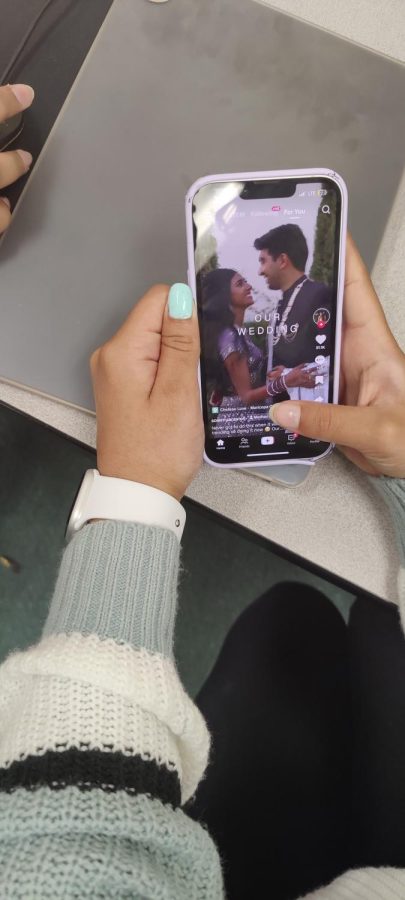The future of Tiktok
June 19, 2023
One of your favorite apps may be under serious threat. From dances to movie edits to Playboi carti leaked audios–Tik Tok has everything a South student could want. Yet, as concerns over security permeate Congress’s walls, the beloved app could cease to exist or be subject to increased restrictions.
The ban is something that is not new on the international level. According to Time Magazine, countries such as India, Taiwan, Pakistan, etc., have nationally outlawed TikTok over the past three years. Even in the US, a ban on TikTok isn’t as novel as people presume. Back in 2020, the Trump administration called for the app to be banned but was struck down in court due to the Berman Amendment which, according to NPR states that “digital media must be able to flow freely between the US and hostile countries”. As of now, however, the ban is unlikely to pass given many legal scholars’ belief that it would go against people’s First Amendment right to freedom of speech.
It is worth mentioning that the primary deciding factor of the ban rests in China’s hands. Unlike the previously popular app, Vine, an American owned company that faced little legal threat, TikTok is owned by a Chinese company called Bytedance. Due to this, many politicians are concerned that TikTok might be collecting data off of Americans to send to the Chinese government. While the company vehemently denies these claims and research from The New York Times shows that “TikTok collects a lot of data, but it’s not out of step with the amount of data collected by other apps”, it remains a prominent argument in the Senate.
Regardless of all the uncertainty and legal issues, what do the actual users of the app think will happen in case of a real ban?
More than 60% of the South’s population uses TikTok. Out of that percentage, almost 40% use the app more than three times per week. When asked about the ban, students were overly supportive of the ban despite their widespread engagement with the platform.
“I think that a ban on TikTok would be good because although we all go to it for quick entertainment, it has seriously reduced our attention spans,” said Aarushi Maskara (‘24).
Not only is it so easy for people to click into the app and get lost in it for hours, but for many, repeated use of it has caused it to be an integral part of their lives. Like Dhanya Jayaraman (‘26) said: “I check TikTok almost every day […] It’s a part of my daily routine.”
Yet, even with so much support for a ban on TikTok, many students believe that a ban won’t change much. Priyal Tyagi (‘25) said “we’ll all probably just switch to a different platform like Instagram reels or use VPNs and APKs to bypass the ban.”
Numerous students at South believe that outlawing TikTok would slightly improve their productivity, but even then, there will always be mindless forms of entertainment that will easily replace the program. Youtube, Instagram, Pinterest, etc., however, will not be under threat like TikTok, given that they are American owned companies.
But do those whose data is supposedly under the threat of Chinese distribution believe that there is any real danger? Imani Laird (‘24) thinks not: “I can see where people are coming from with a major political rival known to look at citizen’s information having access to one of the biggest apps today, but honestly, I do not care. What can they do? Look at my texts to my friends? No one wants to read that.”
Many students hold similar sentiments. Given the platform’s primary demographic of users falls in the 14 – 28 age bracket, it makes sense that not many view the security concerns as a real threat to their personal information. After all, most users simply post funny videos about miscellaneous things or share their opinions on certain topics, not really things that would expose personal information.
After interviewing South students and taking a look at the evidence, it becomes clear that, whether or not a ban on TikTok were to actually occur, the lives of South students would remain relatively unaltered. With minor changes in productivity and work drive, students would continue to move on with their days and turn to different programs to provide them with quick entertainment.
A ban would, however, alter the grounds on which we interpret our first amendment right to freedom of speech. In our new digital age, governments constantly face the challenges of internet regulations, and with the mixture of foreign dangers, data collection, and the simple popularity of TikTok, it becomes clear that there can be no easy verdict for this issue.
So as we stay awaiting the results of this hotly debated trial, shall government intervention and growing support against the app prevail? Or will freedom of speech and expression hold paramount?
Photo By: Sri Sowmya Tanguturi(‘26)






